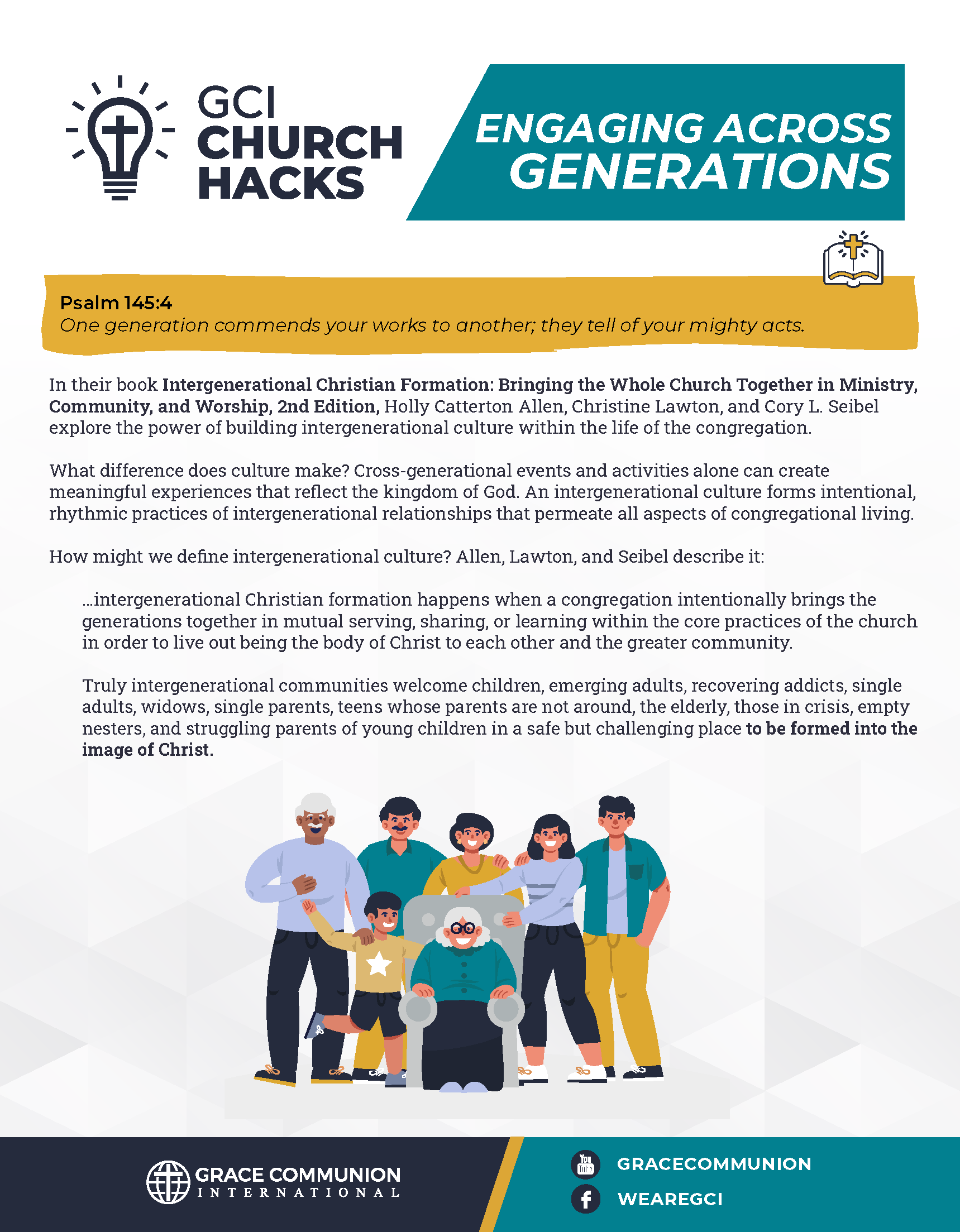Rev. Dr. Jared Michelson—Year C Proper 18-21
Welcome to the Gospel Reverb podcast. Gospel Reverb is an audio gathering for preachers, teachers, and Bible thrill seekers. Each month, our host, Anthony Mullins, will interview a new guest to gain insights and preaching nuggets mined from select passages of Scripture in that month’s Revised Common Lectionary.
The podcast’s passion is to proclaim and boast in Jesus Christ, the One who reveals the heart of God, Father, Son, and Holy Spirit. And now onto the episode.
Anthony: Hello, friends, and welcome to the latest episode of Gospel Reverb. Gospel Reverb is a podcast devoted to bringing you insights from Scripture, found in the Revised Common Lectionary, and sharing commentary from a Christ-centered and trinitarian view.
I’m your host Anthony Mullins, and it’s my delight to welcome our guest, Rev. Dr. Jared Michelson. Jared is a Presbyterian minister and a research fellow at the University of St. Andrews School of Divinity. His research interests include but not excluded to the doctrine of the divine attributes and Reformed thoughts, the doctrine of God, and the crisis of modernity and theology and economy after Barth.
Jared, thanks for being with us and welcome to the podcast. And since this is your first time joining us as a guest, we’d like to get to know you a bit, your story, projects you may be working on, and ultimately how you are participating with the Lord Jesus Christ.
[00:01:31] Jared: Thanks so much for having me. It’s great to be with you.
Yeah, I live in St. Andrews, Scotland. I’ve lived here for about 12 years, but I’m from the states originally and came over here to study. But during that time, I was ordained in a denomination here in Scotland and have two young daughters. My wife is named Becky. She came over with me from the States.
We actually had only been married for one month before we moved here. So, our entire married life has been in Scotland. We just decided to do all of the transitions in one glorious and terrifying moment. So yeah. I’m a researcher now, which means in theory, most of my day is meant to be spent researching and writing, although in actual practice a lot of my time ends up being spent teaching and helping with the Divinity School. Here I’m involved with what’s called our Systematic and Historical Theology Masters, and I’m also still very much involved with the church here, both locally and nationally.
[00:02:32] Anthony: Since you’re at St. Andrews, I have to ask you this, because I’ve had friends who have lived there, either participating in the School of Divinity or just going to play a round of golf. And when I ask them about St. Andrews typically, Jared, they get this just far-away look in their eyes of enchantment. What makes St. Andrews so special?
[00:02:54] Jared: Yeah, a lot of things do. Obviously, the big thing I suppose is that it’s the home of golf, the oldest golf course in the world. And so, when you tell a golfer that you live in St. Andrews, and as I do not— you do not — play golf, it’s really like committing a war crime. It’s deeply idolatrous to them. You can lose friends very quickly when you admit you live in St. Andrews and don’t play golf. So that’s one of the reasons. But it’s also the oldest university in Scotland. It’s a beautiful, small town. But one of the things I’ve loved about living here is it’s also a place with a lot of need.
And having been in ministry here, anyone that’s been in ministry, in any community, I think you see there’s the kind of beautiful exterior and then there’s another side that’s maybe not as obvious. So, I love this community. Yes, you can come for a few days and be taken up by the mystique, but there’s also a lot of need, but a lot of wonderful people doing great work seeking to serve Jesus.
I was just for example, at a youth camp this week from a bunch of the different churches and Christian organizations in town — young people hearing about the gospel. So, there’s that side of it which is just as beautiful to me as the kind of golf course and cathedral and things like that.
[00:04:13] Anthony: We already have common ground because for me, that little golf ball Is the embodiment of the Satan. It’s just that I have friends that love golf; I respect them, but nothing drives me more batty than trying to hit that little golf ball.
[00:04:30] Jared: Yeah. We really do have that in common, because I have to confess, I did try playing golf at one point, and so perhaps I’m just a failed golfer more than anything else.
[00:04:38] Anthony: Maybe at some point our paths will cross and we can play golf badly together. So, how’s that? Hey, I wasn’t planning to ask you this, but maybe briefly, what are you researching right now, if you don’t mind me asking it?
[00:04:55] Jared: As you mentioned before, a lot of my work has been on the doctrine of God, which can sound a bit funny. When I first came here, the first three years I was here, I worked in a pub. And if you, obviously, if people say, what are you doing here? And when you say the doctrine of God, people have no idea what that means. So, very soon when people said, what are you doing here? I just would say, I study God, which would oftentimes start some very interesting and strange conversations over a pint.
But, to me, the issue of God’s character, who God is, why we can have confidence that we can know who he is — I see this as the perennial fundamental question of our time. Can we trust that we have good reason to know God? And what is God really like and what difference does that make to every facet of life? So that’s obviously a very general way of putting it, but those are the kind of questions that have motivated all of my academic work, and I’m continuing that trajectory now.
[00:05:46] Anthony: Oh, that’s good. And as we come to the text for this month, we’re always asking the question of theology — who is God and who has he revealed himself to be in Jesus Christ?
Let’s get to it. Let’s move to our first text of the month. It’s Philemon 1:1-21. I’ll be reading from the New Revised Standard Version, updated edition. It is a Revised Common Lectionary passage for Proper 18 in Ordinary Time, September 7, and it reads,
Paul, a prisoner of Christ Jesus, and Timothy our brother, To our beloved coworker Philemon, 2 to our sister Apphia, to our fellow soldier Archippus, and to the church in your house: 3 Grace to you and peace from God our Father and the Lord Jesus Christ.4 I thank my God always when I mention you in my prayers, 5 because I hear of your love for all the saints and your faith toward the Lord Jesus. 6 I pray that the partnership of your faith may become effective as you comprehend all the good that we share in Christ. 7 I have indeed received much joy and encouragement from your love, because the hearts of the saints have been refreshed through you, my brother.8 For this reason, though I am more than bold enough in Christ to command you to do the right thing, 9 yet I would rather appeal to you on the basis of love—and I, Paul, do this as an old man and now also as a prisoner of Christ Jesus. 10 I am appealing to you for my child, Onesimus, whose father I have become during my imprisonment. 11 Formerly he was useless to you, but now he is indeed useful to you and to me. 12 I am sending him, that is, my own heart, back to you. 13 I wanted to keep him with me so that he might minister to me in your place during my imprisonment for the gospel, 14 but I preferred to do nothing without your consent in order that your good deed might be voluntary and not something forced. 15 Perhaps this is the reason he was separated from you for a while, so that you might have him back for the long term, 16 no longer as a slave but more than a slave, a beloved brother—especially to me but how much more to you, both in the flesh and in the Lord. 17 So if you consider me your partner, welcome him as you would welcome me. 18 If he has wronged you in any way or owes you anything, charge that to me. 19 I, Paul, am writing this with my own hand: I will repay it. I say nothing about your owing me even your own self. 20 Yes, brother, let me have this benefit from you in the Lord! Refresh my heart in Christ. 21 Confident of your obedience, I am writing to you, knowing that you will do even more than I ask.
So, Jared, I wanted to ask you if you were preaching, proclaiming this text to a congregation, what would be the focus of your heralding?
[00:08:50] Jared: There’s loads of different methods that people have for preaching, ways that they organize a sermon. And I don’t think there’s any right one right way or wrong way. And obviously any kind of method like that becomes formulaic can be really unhelpful. And I think you want to be guided by the text itself, not by your method. Nonetheless, sometimes it does help to have something to help organize your thinking a bit.
And for me, one of the things I try to do, especially because when I do preach in St. Andrews, it is to a very diverse audience. It’s not … I can’t assume that people are interested in the gospel, that they accept the authority of scripture. And I feel even in that, to me, the first thing you want to say is you want to earn your right to be heard.
And in this text, I feel like in that sense, it’s very easy because it raises this just profound existential question. Paul is writing to Philemon asking him to accept back this runaway slave, Onesimus, and it raises these questions: Is Paul somehow endorsing slavery? Is he, even if he seems to be appealing on Onesimus’ behalf, but is he in so doing, is he somehow accepting the institution? Does this mean Christianity is pro-slavery? What do we do about the fact that at times Christians in the past were pro-slavery?
So, to me, I think that that’s right where I would go. And I think this passage, when we read it in context, I think it just has an incredibly liberatory message far from — this is a very controversial issue, but I’ll just jump right in — far from endorsing the institution of slavery, in verse 8 and 9, Paul says basically, I could just tell you to do the right thing.
In other words, Philemon, the right thing to do is to release Onesimus. That’s not in doubt. This is someone that is following in the way of Jesus. The question is, how do we move towards this vision of justice? And what I think we find in the New Testament is a text that is not laying out a political vision for society.
For example, when Paul instructs people in Romans 13 to obey the emperor, do we take that and say, “Ah, what this means is Paul is endorsing a politics that has an emperor and he’s opposed to democracy?” No, that, that’s not the sort of text Romans is. Paul isn’t giving his ideal account of how the government should be set up. He’s saying, given the situation you find yourself in, how can you behave in a way that reflects the ethics of the kingdom of God?
And that’s very much what I see Paul doing here as well. He’s not endorsing the institution of slavery. Again, he’s saying, I could tell you the right thing to do. But he’s actually appealing to a deeper motivation. He’s basically saying if you understood the gospel, if you understood the fullness of what you’ve received in Jesus, then this issue would resolve itself. You would realize that what you have here is a brother, and you would have to think through, how do I treat this other in light of their status as a beloved child of God? There is still something provocative for us, though, here, if I can keep going, Anthony. Is that all right?
[00:12:31] Anthony: Please. You’re on a roll, man. Let’s go.
[00:12:33] Jared: What is provocative about it is that we would like Paul to proceed differently. We would think, “Paul, this slaveholder is an evil, wicked person. Why would you possibly say to him, respond to his sin of slaveholding, in this roundabout way that appeals to the gospel of Jesus Christ rather than just exposing his utter wickedness?”
And the truth is, I understand that feeling, there’s something absolutely right about our modern reaction to this text, which lives in a culture that has been I think, informed by the ethic of the gospel and that sees slavery for the horror and the wickedness that it is. And yet what is so beautiful about the gospel is that it meets all of us where we are.
In other words, where the gospel meets the slaveholder in this culture is not at all endorsing their slaveholding, but is nonetheless trying to restore and free the slave, while also redeeming the slaveholder. And so, the challenge of this text is we oftentimes wish that Paul had responded to the slaveholders of his day much more harshly.
And yet, do we want the same for us? Do we think that if God looked at our own wickedness and our own brokenness and the things that we as a culture are totally blind to, that we would merit a different response? I doubt that.
I remember a good friend of mine recently — we were going through a really difficult situation. Someone had made a big mistake that was in our community. And they said to me, it feels like we are free in the church to say we’re sinners but we’re not actually free to commit a bad sin.
In other words, it’s absolutely fine if you get up in front of heaven and you say I’ve sinned in all sorts of ways and state it with generalities and vagueness, but as soon as you say something you’ve done and it is something that is destructive and that is harmful and that hurts another person, we suddenly don’t want people to get grace anymore. We want to go straight in with the law.
[00:15:00] Anthony: Sure.
[00:15:00] Jared: And so, part of what I think is scandalous about Philemon … look, part of it is it’s a difficult text. I absolutely recognize that. … But part of it is that I think it is a way of being utterly opposed to slavery, that is nonetheless opposing slavery with a gospel message and a call to what’s sometimes called evangelical repentance.
I don’t know if you’ve heard that phrase before, that the reason we repent is not just because of the law — though it’s not opposed to that — but it’s because of such a profound realization of the grace or the gospel that we’ve received. So, that’s part of the message that I see here. Yes. Part of the reason it’s scandalous to us is because we live in a culture that now where slavery is no longer accepted at all, which is a wonderful good thing, which I think again, we could talk about is partially produced by the gospel. Indeed, Nietzsche in his criticism of religion called Christianity a slave’s religion. He saw that it was a religion, when it says there is neither Jew nor Greek, slave nor free; it was a religion that was from the beginning deeply for the downtrodden and the oppressed. And that is part of what has transformed our society.
But again, the other reason I think we struggle with it is because when people actually do real sins, they don’t just talk about sin in vague general terms. We oftentimes rush to want to see them destroyed and pushed down, not redeemed from within by the gospel.
[00:16:24] Anthony: Yeah, it’s powerful what you said. And I’m just thinking back to the very beginning when you said, when you proclaim the gospel, it’s often with people that are diverse in the group — there’s diversity there, but there’s also those that don’t necessarily believe in the authority of scripture.
Jared: Absolutely.
Anthony: And so, a text like this is very appealing because it really does get to the heart of the human condition. Not just slavery, but like you said, sin — whatever sin looks like in a person’s life. And it’s powerful to see Paul’s approach with the brother here.
And to me, it is it just shows how forgiveness, reconciliation — it’s all a part of the healing process. Which really brings me to the next question, because I’ve heard some people say that this appeal that Paul makes, it puts forgiveness and justice at odds. But is that really the case? What’s going on here?
[00:17:23] Jared: Yeah. I think that’s another huge issue, isn’t it? I think we know forgiveness and justice aren’t at odds, and part of the reason is because, again, if we just ask, do we think that what would be the best thing for a slaveholder is that they would be forgiven and they would be allowed to continue in their slaveholding?
I think the answer is obviously no, primarily, and firstly, because God cares for the good of the slave, but secondarily because God cares for the good of the slaveholder. There’s a quote from Herbert McCabe, who is a Cambridge Dominican theologian, and he said, “Look, sin always hurts the other. Sin always has harmful effects on the other, but what makes sin sin, what defines sin as sin, is actually what it does to the perpetrator. And what he means by this is, he’s not saying it’s more important, like the sometimes the bigger deal, so to speak, is what sin does to the other person.
But you can accidentally hurt another person. If you accidentally performed some action and then you intentionally perform the same action and it had the same result on the other person. One of those would just be a terrible accident. But the other that was intentional and deliberate would be sin.
So, if the effect on the other is the same what makes a difference? What makes one just a terrible accident? And the other a sin? And the difference is that sin mars, the soul; it destroys the sinner. And so, when you look at this all throughout the Christian tradition and then some — it has this long discussion on how in order for God to be merciful to the sinner he has to be just, because the best thing for us is to be freed from our sin which makes us less than fully human.
The tragedy for the slaveholder is yes, first and foremost what they’ve done to the other, but it’s also how they are marring and defacing their own humanity. This is a beautiful person made in the image of God who has somehow become so distorted that they can hold another in bondage. So, the way that God’s mercy works itself out in our life is actually through justice, through God moving us towards a more humane way of living, which is ultimately for the good of the world and for the good of the other, absolutely.
But it’s also equally for our own good and were God to give a kind of mercy that wasn’t transformative, a “cheap grace,” as Bonhoeffer said, that didn’t make us different, that would be a profound lack of kindness and mercy to us because it would be leaving us trapped in a dehumanizing way of living.
[00:20:07] Anthony: Now you’re meddling because … and I absolutely agree that God loves the perpetrator just as much as the victim, and he loves the perpetrator so much that he is just. And confronts him. And but boy, we just want … smite the perpetrator, Almighty Smiter! That’s our desire.
But that person is an image bearer of God. The Imago Dei is there and sometimes we forget how that’s harming that image within them, that God is still for them, but he is so for them that he is going to confront the sin. And thanks be to God. That is kindness. It is kindness to show compassion in such a way that faces up against that which would harm another. That’s what good news is to the other. “Stop it!” And that’s what Paul is telling Philemon here.
[00:21:02] Jared: Absolutely. Absolutely. We can sometimes have this kind of schizophrenic vision of God. I certainly did — I could tell a long story about that — where we think that God has two sides. The one side is loving and good, and the bad side is justice and wrath. And that orthodoxy means balancing those two sides.
And I think that is, yeah, I think that’s a kind of — I don’t want to overstate it here — but I do think that’s in danger of being a kind of pagan view of God.
[00:21:29] Anthony: Yeah.
[00:21:30] Jared: That God’s, as the Puritans talked about, God’s justice or his wrath is just the strange side of his love. It’s not something different. It’s not something in competition. It’s his utter and decided will for the flourishing of all he has made. And his settled opposition to what is defacing and dehumanizing and destructive. It’s a way his goodness expresses itself for our good.
[00:21:55] Anthony: Well said, my friend.
Let’s transition to the next pericope of the month. It is 1 Timothy 1:12-17. It is a Revised Common Lectionary passage for Proper 19 in Ordinary Time, which is September 14. Jared, would you read it for us, please?
[00:22:15] Jared: Yeah.
I am grateful to Christ Jesus our Lord, who has strengthened me, because he considered me faithful and appointed me to his service, 13 even though I was formerly a blasphemer, a persecutor, and a man of violence. But I received mercy because I had acted ignorantly in unbelief, 14 and the grace of our Lord overflowed for me with the faith and love that are in Christ Jesus. 15 The saying is sure and worthy of full acceptance: that Christ Jesus came into the world to save sinners—of whom I am the foremost. 16 But for that very reason I received mercy, so that in me, as the foremost, Jesus Christ might display the utmost patience as an example to those who would come to believe in him for eternal life. 17 To the King of the ages, immortal, invisible, the only God, be honor and glory forever and ever. Amen.
[00:23:08] Anthony: So, you’re a researcher that focuses on the doctrine of God. So, tell us about this God revealed in Jesus Christ through this text.
[00:23:17] Jared: Yeah, it tells us a great deal about this God, doesn’t it? One of the things that really jumps out to me, and I think this does get to the character of God, maybe it’s getting there in a roundabout way, is that Paul seems to say something that is very implausible. Is it the case, that Paul is actually the worst of all sinners?
The fact that God enjoins us sometimes to enact what we might call moral fictions to counteract the ways we can go wrong by living as if something were the case. So, think of Philippians, I think it is, when he says, consider others more significant than yourself.
Does that mean that literally you are less valuable and other people are more valuable? I don’t think so. The way I sometimes describe it when I’m doing a wedding with people is saying, one of the things I had to learn for myself is that I have a remarkable capacity to keep meticulous detail of all of the chores I have done around the house, and to just so happen to not see all the ways, all the things that my wife has done. And I’m not doing that deliberately. It’s my kind of blindness. And so actually, if I just try to keep things 50/50, they won’t be 50/50 at all. I need to try to treat her as more significant than myself.
And I think that’s part of what Paul is saying here. This isn’t a kind of worm theology where Paul is saying, “I’m so bad” and he’s whipping himself. Instead, to your point, he is I think overwhelmed by the grace of God, the mercy that he has received. And that is him choosing to live a life that is continually aware of that. And that’s his motivating sensor.
One of the words that really jumps out to me is in verse 16 where it says, Jesus has showed patience with me. And this actually becomes a really important word in the Christian tradition. And funnily enough, it’s one of the words that helps create our modern idea of tolerance.
We sometimes think that tolerance just means being a relativist or being indifferent, but it doesn’t mean that at all. Tolerance means bearing with something that you find objectionable for the sake of maintaining communion or relationship or community with the others. And with the other. And this is what God does with us — that despite our brokenness, despite our sinfulness, God is continually bearing with that so that he can maintain union with us and communion with us and drawing us into deeper union with him.
So, to me that’s a part of the kind of beautiful vision of God’s character that Paul is talking about here. He’s not emphasizing his sin to beat himself down, but he’s overwhelmed by the fact that though he can look back and see all of his many missteps, that God has been walking with him through that all the time. He’s that kind of good shepherd, walking with us through the valley of death and being patient with us in countless ways we don’t know. So yeah, to me that patience is a wonderful kind of exemplification of God’s character and love.
[00:26:38] Anthony: Yeah, my eyes are drawn to verse 14, “the grace of our Lord overflowed.” Andrew Purvis talks about this super overflowing abundance in God. It overflowed for me with the faith and love that are in Christ Jesus. Overflowing good. Yes … including the patience that you mentioned.
It seems odd to me that people would interpret the text this way, but I have seen some react to this interpretation that God is conditional, that Paul was strengthened by the Lord because he was considered faithful. Verse 12, he received mercy because he acted out of ignorance, not willfully. In verse 13. So, Jared, is God’s kindness based on conditions?
[00:27:27] Jared: No, but I think it goes back to a bit of what we spoke about before. There are conditions and there are conditions. Let me put it this way …
[00:27:40] Anthony: Tell me more.
[00:27:42] Jared: This is an analogy I’ve used before, where we can go back to this kind of idea of slaveholding. I’m not an expert on these things, but apparently this kind of situation actually did happen in the American South. You had the legal declaration that slavery as an institution was ended. And so, you had men and women that were held slaves, that lived in terrible conditions, that were forced to do backbreaking labor, that had very little agency and very little prospects in life.
Slavery was abolished, and then they went to live in the exact same houses. They worked in the exact same fields. They had the exact same limited prospects in life doing the exact same back-breaking labor, but they received a very small amount of money at the end of the week, which they had to use to pay for those very terrible houses they used to live in. Would we say that person is free?
Formally, perhaps their official condition is free, but if nothing has materially changed about the facts of their life, they’re not actually living as free people. They’re functionally still in bondage. And so, part of what the gospel … and I think sometimes we view the gospel that way when we say, is there no conditions? What is there isn’t is any standard you need to meet in order to be forgiven. Part of the kind of amazing discovery of the reformation is that Jesus has he has paid the penalty for sin. And that being united with him allows you to have in a sense all of the conditions met, but it necessarily will lead you into a new life.
And you are not actually being freed. You are not actually being saved. You are not actually living in Christ unless you are living a renewed, transformed, different life. Not so that you can earn God’s favor, but so that you can actually experience salvation. You can live as a free person and this too is not somehow something you earn off on your own.
It’s living into your union with Christ. It is grace upon grace. It is, as Paul said, working out your salvation with fear and trembling for it is God who is at work in you.
[00:30:06] Anthony: Yeah, that brings some great insight in terms of just the way that we experience salvation. And thanks be to God that salvation is not a one and done act. But it’s the ongoing perpetual reality of God that he is saving us, that he is delivering us from bondage each and every day. Hallelujah. Praise God for that. And so that makes sense. It almost puts a subjective reading on scripture like, yes, this is objectively true what God has done — forgiving me, but it’s there is this act of living into the salvation that he has so graciously given to us. I think that’s what you’re saying, right?
[00:31:00] Jared: That’s exactly what I’m saying. I think you’ve put it as, as often happens with me, I think you’ve put it far better than I have, so thanks for doing that. But exactly the New Testament speaks of salvation as something that is being completed and as something that is completed. It is both of those. And sometimes we can have this very unhelpful view that being saved is just simply a question of, am I going to heaven or not? And that is not at all how the New Testament uses this very multifaceted language of being saved. You are always in danger when you try to summarize the richness of the gospel.
But for me, the gospel is about the renewal, the restoration of our entire person. Indeed, it is about forgiveness. It is about eternal life, but it is just as much about living this abundant life in Christ now, being restored and renewed into his image, and then making this entire cosmos new.
[00:31:41] Anthony: That reminds me of a quote from Eugene Peterson where he said, resurrection is not exclusively what happens after we’re buried. It has to do with the way we live right now. The kingdom is near; the kingdom is here. Let’s be about the Father’s business.
[00:31:55] Jared: Absolutely. That is the meaning of that word.
[00:32:01] Anthony: Our next text for the month is 1 Timothy 2:1-7. It is a Revised Common Lectionary passage for Proper 20 in Ordinary Time, which is September 21.
First of all, then, I urge that supplications, prayers, intercessions, and thanksgivings be made for everyone, 2 for kings and all who are in high positions, so that we may lead a quiet and peaceable life in all godliness and dignity. 3 This is right and acceptable before God our Savior, 4 who desires everyone to be saved and to come to the knowledge of the truth. 5 For there is one God; there is also one mediator between God and humankind, Christ Jesus, himself human, 6 who gave himself a ransom for all —this was attested at the right time. 7 For this I was appointed a herald and an apostle (I am telling the truth; I am not lying), a teacher of the gentiles in faith and truth.
This is a brief but powerfully rich theological text. God desires everyone to be saved, verse 4. Jared, what does this declaration tell us about God, the church, and anthropology, human worth?
[00:33:19] Jared: Yeah. I really like that last bit of the question. What does it tell us about anthropology and human worth? Because I think it tells us quite a lot. Verse 5 has this proclamation of monotheism: “for there is one God, and there is only one mediator between God and humankind, Jesus Christ.” This is actually profoundly significant for developing ideas of human dignity, human rights.
When you look at the ancient world, Christian monotheism was not just about how many gods there are. In fact, it wasn’t really about how many Gods there are or not, because at times Paul seems to say there’s lots of false gods. There might actually be some malevolent powers that are kind of God-like in a bad way.
It was more about the character of the one God and the one God that is revealed in Jesus Christ. Paganism had this way of relating to God, and you see the prophets particularly in what’s called the post-exilic text, particularly in the bits of the Old Testament that are when Israel is trying to reckon with the exile, they are constantly critiquing the pagan deities.
And the critique is less about how many gods there are. The critique is that your gods are needy —paganism in this way. And they had a vision of God that was based on exchange. If you want your crops to grow, if you want your nation to be protected, if you want to have a large nation, then the key is treating the god rightly. If you give the god the proper sacrifice, then he will make your crops grow. If you sacrifice just a little bit of something that is valuable to you, then he will give you something even more valuable. If you sacrifice a few of your crops, he’ll make your crops grow. If you sacrifice an animal, he’ll protect your nation. And on and on it goes.
And the kind of terrible dialectic of idolatry is that out of desire, out of seeking something that you think will make you happy, whether it is flourishing or protection or a large family, you end up giving more and more to the god. The gods are needy, they’re demanding, and eventually you end up giving the thing that is most precious to you for the sake of your own happiness, because of course, the horrible conclusion of idolatry. This idolatrous dynamic that the prophets critique is child sacrifice. You give literally the most precious thing in the world to you for the sake of your own desire.
And the prophets constantly have this exalted, transformed, monotheistic vision of God, which just cuts off that logic of exchange right from the beginning. In the Psalms, God will say, “I have the cattle on a thousand hills. If I needed anything, I wouldn’t have asked you. In other words, there’s no exchange needed here. My goodness doesn’t need to be bought. It doesn’t need to be bargained with. And the reason is actually because I am so full of life, I’m the Creator of all things. I’m not one small pagan tribal deity that you can bargain with that’s just for your nation and not others. I’m the God who made all things, and therefore I’m so endlessly rich that the needs of bargaining couldn’t even enter into the equation to begin with.”
But the other implication of this is that when you have a pagan god, when you say, we’re the Babylonians and we have Marduk and he’s our god, and we’re some Canaanite tribe and we have Baal and he is our god, your gods are for you and not for anyone else. They work for you if you pay them off, and they’re opposed to the other. And so, when you look at the ancient world, they don’t have our modern idea that all humans have shared dignity and value just because they are human.
When you read Aristotle, he has a very different view. He says, some people were born to be slaves and other people were born to rule. He said, some people were born Greeks or Romans, and some people were born barbarians. And they’re almost as if these are different sorts of species, as if to be a Roman and to have our gods makes us of a fundamentally different kind than these other sorts of beings.
And so, part of the revolution of monotheism and particularly Christian monotheism is saying, if there’s one God overall, then he operates with us out of his goodness, not by bargaining, but two, he is the God for all people, not just for us. As I said before, there’s no slave nor free. There’s no Greek nor barbarian.
And that’s why Paul on Act 17, when he comes to speak to the Greek thinkers, he says, this God is not far from any one of us. In him, you live and move and have our being. He’s the Father of all and he’s basically been reaching out to all of humanity from the beginning.
So, this vision of one God is actually profoundly significant. It is, I would argue — and there’s a lot of intellectual histories that have made this point — it is the roots of our modern idea that every single human person, no matter where they’re from, no matter what race they are, no matter even what religion they are, every one of them is worthy of dignity and value. And this is actually rooted in the idea that there was one Creator and Lover and good God over all. So yeah, that last question, I think this is absolutely essential to recovering a vision of the human worth and dignity of every person.
[00:39:00] Anthony: And for me, this is why it’s so important to point to this one God as triune Father, Son, and Spirit. Because if you have a unitarian God in isolation, he would have created out of need. And so, everything does become about neediness.
But within the triune nature of God, there was joy, overflowing harmony. There was no need. But out of the overflow of love, creation came to be. And therefore, all created beings, all of our human beings made in his image and likeness, not out of need, but because of desire of relationship, of wholeness. And as you said earlier, for the flourishing of all mankind. It’s so important to see the triuneness of God, the Trinity.
[00:39:45] Jared: I think that is absolutely right. And sometimes I say things like this and people will think that this is some sort of revisionary version of God. This is not true at all. You can find arguments like this all throughout the medieval, the idea that if goodness, if generosity is a divine perfection, if it’s part of what made God perfect, then if God was just a monad, then who could God have been generous to without creating?
So, what that would mean then is in order to be generous — and remember we said generous was, generosity is part of what makes God perfect — so, in other words, in order to be perfect, in order to be God, he would’ve needed to create, and in that case, God wasn’t creating the world in order to give. He was paradoxically creating the world for himself so he can become perfect, so he can become generous, so he can become the generous God that characterizes perfection. Instead, as you said, if God is Father, Son, and Holy Spirit, if he is perfectly giving within his one essence from all eternity, then this world is, and I love this word, even though it’s a big word, is gratuitous. God didn’t need it for the sake of God.
[00:40:54] Anthony: Yes.
[00:40:55] Jared: God literally loved it into being out of that fullness and joy within God’s perfect triune perfection. He spilled out into the world. And again, sorry, I know I’m rambling here, but this does transform the way we think about quote unquote conditions, to go back to our earlier view. Because we oftentimes have actually that kind of an implicit pagan view of God that I was talking about before. We think God has saved us or God has promised us salvation. God has done all of these good things for us. And, therefore, he just asks a bit from us in return.
He wants us to do some good things, either to pay him back for what he has done or because this is owed in some way because of all of the good things he promises to give to us. But if God is this infinite triune God, that can’t be the case because God doesn’t need anything we have to give. So, anything he asks us to do can ultimately in some deep sense only be for us, not for him. It can only be to give grace upon grace, gift upon gift, to lead us into more humanity and more flourishing and more wholeness, not to take something from us that he was lacking.
[00:42:02] Anthony: Yeah, that’s so insightful because, and not to get into another subject, but that really does inform missiology. Like when we participate in mission with God, it’s out of the overflow. It’s the spilling out of his love, not just another box to check, but this is who God is and this is what he does by his Spirit. And, oh, there’s just so much to get into there.
Let’s continue on with this thought. When we look at verses 5 and 6, we see that there’s one mediator between God and humanity, and you’re in St. Andrews. So, I think of TF Torrance in his work, the Mediation of Christ. What are the implications of Christ Jesus, the man being the mediator between God and humanity? Is that just high theology or is there something very practical about this?
[00:42:50] Jared: Yeah, I think there’s a huge amount that is practical here and there’s so many ways you could get into it.
It is high theology. One of my favorite modern theologians is George Hunsinger, and he talks about how the view of the atonement that you have, the view of what you think Jesus needs to do to redeem us is almost inseparably and inevitably connected with who you think Jesus is. So, in theological terms, the atonement and Christology, what you think Jesus does and who you think he is are inseparable. And the bigger job you think Jesus has to do to restore us and to redeem us, the more exalted you need to think about him.
And I think that’s exactly what we’re getting here, that Jesus is the one mediator because he alone, as verse 6 says, gives himself as the ransom. And I think that’s a really powerful word. Look, I’m not a biblical scholar. They could get into all the details, but at a basic level it just means a means of release.
And that to me gets to the heart of salvation. The reason that we — salvation is a big job and it needs God himself, the one mediator Jesus Christ — is because the most difficult parts of sin are things that we feel powerless before. Again, we can be very judgmental and legalistic and think that if people just wanted to stop sinning, then they could.
And I don’t think that’s a very helpful way of thinking. I think we need to be released from something that stands over against us. I don’t know about you, but when I think of my most kind of intractable character flaws, for me to be completely honest, one of them is just people pleasing. I care so much about what people are thinking about me, I think they’re thinking about me much more than they are. And I usually think that they’re thinking much worse thoughts about me than they actually are. And I can just be consumed in thinking about what people think. And can I tell you if I could stop that, I would. I have wanted to be released from that kind of obsession with being worried about what people are thinking about so many times.
I think that might sound like a mundane, safe thing to share, but I think most of our biggest struggles in life are things that we feel helpless before. I think of my friends that have gone through AA and one of the foundational tenets is that you need a higher power because you cannot solve this yourself.
And that’s what that idea of ransom is about, that we need someone to release us from a power that threatens to hold us captive, and that to some degree makes us helpless, or at least makes us feel helpless. But if I could say one other thing about that idea, then, of the one mediator — what this does mean then is that in, in some profound fundamental sense, our relationship with God is direct. It is in a sense individualistic. It is straight through. There’s no one that needs to stand in the way, that God himself, in the person of Jesus has done what is required to release us from sin. And therefore, by relating to him we have union with God.
And yet what that one mediator doesn’t do is it doesn’t eliminate the fact that God still uses means. Paul talks about how Jesus is the one reconciler, and yet he’s given to us the ministry of reconciliation, that other people can be the means, the vehicle, the space at which we encounter the one mediator that is Jesus Christ. And if we had time, I could tell loads of stories about that. But that is what you talked before about mission.
Mission is not us going off on our own and through our own ingenuity or smarts or argumentative rigor or whatever it may be, winning people to Christ. It’s maybe being in the right place at the right time, where the one mediator, Jesus uses us as an instrument to show people Jesus. And oftentimes that’s not through our strength, it’s through our weakness. Oftentimes it’s not through our capacity. It’s through our own need for Christ ourself, which allows us to be that vehicle through which other people meet the one mediator that is Jesus.
[00:47:15] Anthony: So much could be said there, and I’m grateful for what you did say, because it’s a lot — that we have direct relationship with the Father. Jesus is not so much a middleman as it were.
Sometimes I think people can get that idea that he’s protecting us from the Father. That’s not what’s at play here at all, because guess what? The Father’s like Jesus and has always been like Jesus. We didn’t always know it, but now we do because he is the one mediator. Hallelujah. Praise the Lord.
Our final pericope of the month is 1 Timothy 6:6-19. It is a Revised Common Lectionary passage for Proper 21 in Ordinary Time, which is September 28. Jared, I would be grateful if you read it.
[00:48:02] Jared: Of course.
Of course, there is great gain in godliness combined with contentment, 7 for we brought nothing into the world, so that we can take nothing out of it, 8 but if we have food and clothing, we will be content with these. 9 But those who want to be rich fall into temptation and are trapped by many senseless and harmful desires that plunge people into ruin and destruction. 10 For the love of money is a root of all kinds of evil, and in their eagerness to be rich some have wandered away from the faith and pierced themselves with many pains.11 But as for you, man of God, shun all this; pursue righteousness, godliness, faith, love, endurance, gentleness. 12 Fight the good fight of the faith; take hold of the eternal life to which you were called and for which you made the good confession in the presence of many witnesses. 13 In the presence of God, who gives life to all things, and of Christ Jesus, who in his testimony before Pontius Pilate made the good confession, I charge you 14 to keep the commandment without spot or blame until the manifestation of our Lord Jesus Christ, 15 which he will bring about at the right time—he who is the blessed and only Sovereign, the King of kings and Lord of lords. 16 It is he alone who has immortality and dwells in unapproachable light, whom no one has ever seen or can see; to him be honor and eternal dominion. Amen. 17 As for those who in the present age are rich, command them not to be haughty or to set their hopes on the uncertainty of riches but rather on God, who richly provides us with everything for our enjoyment. 18 They are to do good, to be rich in good works, generous, and ready to share, 19 thus storing up for themselves the treasure of a good foundation for the future, so that they may take hold of the life that really is life.
[00:49:48] Anthony: I’m going to age myself. I went to university back in the nineties and there was a song that had a line, “more money, more money, more problems,” and it became really famous. And yet, here in the West we pursue money, Jared, as with fervor and gusto above everything. We, in the United States, we talk about the almighty dollar. So, what commentary would you give to the church in light of this and what the text declares?
[00:50:17] Jared: Yeah, I think we should definitely allow these. Part of what I think is so helpful about being in a church that reads the scripture, part of the helpfulness of the ritual of going through scripture, however you do that, is to be forced as a rich, wealthy person to hear words like this read over you. And by rich and wealthy, I certainly don’t feel rich and wealthy. But I mean that in the kind of global sense and in terms of wealth across time.
But again, even here there is a challenge. But I suppose this has been a theme throughout our conversation. I think there’s a way that this challenge comes to us, which is not for our condemnation, but ultimately for our liberation and for our good. I’m really struck by how later on it warns about the uncertainty of riches. And encourages you to towards another sort of riches. There’s a play on words there, right?
[00:51:17] Anthony: Yes.
[00:51:17] Jared: Don’t set your hope in the uncertainty of riches, but rather on God who richly provides for us with everything for our enjoyment. This is a point where to go back to where we started this conversation, I think the message, what might seem to be the challenging message of scripture, actually really resonates with our culture.
How many of our great works of art, or even silly films, are about the uncertainty of riches, about people who think that once I have everything, once I’ve attained success in my career, once I’ve attained a certain status of wealth, then I will be happy. And they find that it utterly fails them.
When, ironically, when I was on my vacation this summer, I was reading a new novel called Perfection. And it was about these digital nomad people that move into a major city and they’re working online and they were seeking the good life. And they and their friends had tried every different way. They tried clubbing for a while, then they tried great food, then they tried great holidays. They were trying all of these different things. And in the end, the story ends with them in this kind of wonderful house seemingly living the simple life they’d been seeking the whole time and yet utterly bereft of meaning and of significance and of the sort of life they’ve really been seeking.
And I think this is the message of this passage —not wealth is really great but you need to obey God and so, you shouldn’t live for it, not this lifestyle would be really wonderful but you’re not allowed to have it. Instead, it’s what it’s pointing us towards — a better, a more lasting, a more satisfying form of riches.
I love Jesus’s parable of the pearl of great price or the treasure hidden in a field where he says, someone goes and finds in a field this buried treasure. And what it doesn’t say is that this treasure was so important that God made him give up everything else. It says, when he found this treasure, it was so surpassingly attractive, so desirable, so worthwhile that out of joy, he went and sold everything else he had so that he could get this treasure. In other words, he’s pointing us towards a deeper, more satisfying form of riches, not wagging its finger at us, and saying, you are trying too hard to be satisfied.
[00:53:37] Anthony: Oh, that’s so well said. I love how you tie that together with where the true riches are and it’s in Christ where everything that is good and beautiful is found. And the New Testament tells us that greed is idolatrous. Yeah. It’s idolatry.
And yet so often we hold it up as a virtue. And it’s not that God is withholding for us, he just has the better thing to give to us if we would just receive it. And I think this is what the text is pointing to.
[00:54:08] Jared: Absolutely.
[00:54:09] Anthony: Yeah. So, what does it look like? This is a big question, and you can go a million different directions, but what does it look like to fight the good fight of faith and to take hold of eternal life? And maybe you can provide some commentary of how we’re doing it well and where you see us falling short as Christians.
[00:54:28] Jared: Yeah. I think, maybe to be slightly provocative, verse 7 says we brought nothing into the world and we can take nothing out of it. There is a quite brazen appeal here to heavenly mindedness. And in the late 20th century, early 21st century theology and biblical studies, heavenly mindedness got a really bad rap. There was this idea that the problem with Christians is that we’re too focused on eternity.
[00:55:00] Anthony: Yes.
[00:55:00] Jared: And we’re not focused enough on this world, or the material things or physical things or whatever it may be. And I’m not very sympathetic to that way of thinking.
And part of the reason, I almost think the opposite. I think we live in an age that is consumed by the immediate, that is consumed by … sometimes when people would say to me every sermon needs to be practical, I would say I agree with you.
But sometimes what I think we mean by practical is this needs to be something I can put into practice on my way home from church today. And I think the most practical things in life don’t work like that. They’re not just little life hacks that you put into practice to change your life. They’re about who you are as a person. They’re about restoring you and making you new. They’re actually more about virtue than just about following a rule.
And I think something similar here in our culture right now, as you might know, there is a revival —particularly among young people — of Stoicism, of a philosophy of life which is combating this obsession with immediate gratification, which we all have. And Christianity from the beginning has had a very complicated relationship with Stoicism.
When you read these first few verses here about contentment, it’s saying, look, there is something right about that. There’s something right about delaying gratification, about living for something more than immediate gratification, living for a standard or a virtue that goes beyond it. Okay, so there’s a grain of truth to that.
And yet Augustine famously mocked the Stoics as well because he said do you really think that someone — because Stoicism says basically, if you have the right attitude on life, then it doesn’t matter what good things you lose, you should still be able to be happy, and Augustine said that was ridiculous — do you really think that if you’ve lost a loved one or lost a friend that you shouldn’t be troubled, that you shouldn’t be profoundly devastated in the face of that loss? And he looked at the person of Jesus as his is motivation here: Jesus, the one person that of all people was most living not for the immediate but for eternity, whose entire life, as Hebrews said, was for the joy that was set before him.
In other words, the reason he could go through a life of being rejected and of what seemed like failure and ultimately of death was not because he had given up on joy, but because he was living for an eternal joy where humanity was reunited to God along with him. And yet, even though he had that vision, that ultimately all things will be made new, his joy would be made sight, when he looked at his friend Lazarus who died, even though he was going raise him again, he wept.
[00:57:46] Anthony: Yes.
[00:57:46] Jared: He fully faced the loss and the tragedy and the sorrow of life. And that’s what that Stoic vision misses — the fact that life can be broken and imperfect and tragic. And yes, we have hope, but is a hope that is oftentimes through tears facing the reality of a broken world.
And in terms of your final question then, what does it mean to do that well? What does it mean to, on the one hand, yes, not think that I need to be immediately satisfied, to recognize that sometimes I will have desires that don’t go fulfilled, that sometimes life isn’t what it should be, and therefore it can be tragic and I can lament and I can weep, and yet also to do that with hope, trusting that there is a future joy, that this is not the end, and therefore I’m able to face those tragedies without being totally crushed, but still having in some broken way through tears and through suffering and maybe through therapy, hoping in something more. What does that look like? I think part of what it looks like, and this might be a strange thing to say, is accepting that things aren’t going to be perfect in this world.
[00:58:55] Anthony: Yeah.
[00:58:56] Jared: Accepting that what it means to be faithful is accepting when other people aren’t perfect, when your family lets you down, when the church isn’t what it should be, when the government isn’t what it should be, and saying, do you know what? This doesn’t make me give up. This doesn’t make me stop trying. This doesn’t make me stop fighting for justice and truth. This doesn’t make me hopeless. It makes me think that I can keep going. I can keep trying to fight for justice. I can keep pressing in relationships. I can keep doing all of that because I’m not expecting it to be perfect. I’m living for the joy that was set before me, which is already secured in the person of Jesus.
[00:59:34] Anthony: Yeah. That’s so important what you’re saying there. And I think this gets at why Paul can write a letter like that he did to the church in Philippi while he is sitting in prison. It’s sometimes called the epistle of joy. He’s just gushing with joy in the midst of his dark, dank circumstances because of who Christ is, who has been so rich to provide out of generosity to Paul as it is to us. So, even when, say, we have prayed and prayed that we would be healed of some sort of physical infirmity but it doesn’t happen, we don’t doubt God’s goodness, his faithfulness to us because he’s already proven that once and for all in the person and work of Jesus Christ. And so, I think you’re really getting at something — that this life ain’t perfect. It’s just not.
[01:00:25] Jared: No.
[01:00:25] Anthony: But it’s good. It’s so good because of you guys.
[01:00:30] Jared: I think you’re right, that those moments of loss, of prayers that are not answered — long prayers that are not answered — is where you, that’s where you know whether we’re alive.
This doesn’t mean you don’t grieve, it doesn’t mean you’re not incredibly sad. It doesn’t mean you, again, you might not be depressed or anxious or have mental illness. But one of the things I find really comforting, that I do try to encourage people with, is to say, when you say this person isn’t being healed, has God said no?
If it’s not too trite to say, God never says no. At worst, he says not yet. The miracles of the gospels, as a lot of biblical commentators have pointed out, when Jesus is going through this small land and he is healing people left and right, all of the illness and pain, it’s almost as if it’s wiping away what was.
And we say, why doesn’t Jesus do that now? Why doesn’t he do that for everyone? The answer is, of course, he will. That is a foretaste, a sign, the first fruits of the entire world being restored. Every person that was healed was actually a sign for us, that ultimately all tears will be wiped away. Ultimately, all pain and illness will be eliminated. All things will be restored. And so right now, yes, we lament, but we trust that the answer isn’t no, that the answer at worst is wait. The day is coming when those things will be set right.
[01:02:05] Anthony: That’s such good news. And for our listening audience, you may not realize this, but often when I’m interviewing somebody like Jared, I’m meeting them for the first time. During the recording, we’ve, Jared and I, have exchanged emails back and forth to prepare for this, but this is the first time I’ve actually talked to him, as is the case for several of the guests that we’ve had, and I’m so grateful that Andrew Torrance connected us. I really do appreciate you, brother.
You’re a researcher, but I hear the pastor-preacher in you, and it’s so exciting to hear you exclaim and explain and herald the gospel of Jesus Christ. So, thank you for joining us. And I really do appreciate the team of people that make this podcast possible. Reuel Enerio, Elizabeth Mullins, Michelle Hartman — just a great team to work with that puts all this together.
But I wanted to remind our audience of something. Our friends, the one who’s gone before us, the great Swiss theologian, Karl Barth, said, “Christ accomplishes the reality of our reconciliation with God, not its possibility. It’s done.”
And so, as Jared said during the podcast, let’s go be ministers of the gospel. It is such good news and it shouldn’t stay with us. Let’s share it with all that we encounter. May it be so.
Jared, thank you for being with us and as is our tradition here on the podcast, we end with a word prayer. We’d be delighted if you said a word of prayer over us.
[01:03:27] Jared: Yeah. Thanks so much and thanks for your kind words.
Heavenly Father, we just do. We are aware that when we’re talking about these things, it can be very easy to talk about these issues in a podcast, whether it’s issues of racial injustice, issues of loss, of illness. And … speaking in a theoretical, abstract way is totally inadequate before the reality of what people are facing. But we do trust that in Christ you walk with us and enter with us into those injustices and into those tragedies, and you promise that injustice, evil, suffering, pain, none of this has the last word. And so, while we, and certainly my words are inadequate to evaluate those things, we trust that you are not. And in the name of Jesus Christ, your Son, we pray. Amen.
[01:04:12] Anthony: Amen.
Thank you for being a guest of Gospel Reverb. If you like what you heard, give us a high rating, and review us on iTunes, Spotify, or wherever you get your podcast content. Share this episode with a friend. It really does help us get the word out as we are just getting started. Join us next month for a new show and insights from the RCL. Until then, peace be with you!
 Gavin Henderson, Superintendent of Europe
Gavin Henderson, Superintendent of Europe

 Barry Robinson, Regional Director Southern England and Pastor
Barry Robinson, Regional Director Southern England and Pastor

 By Michelle Hartman, Communications Director
By Michelle Hartman, Communications Director By Cara Garrity, Development Coordinator
By Cara Garrity, Development Coordinator



 “The maturity markers are that every disciple … share these four things in common. They have a Christlike character, Christlike theology, Christlike wisdom, and Christlike missional living or sent-ness. These are things that disciples should be equipped in. All four of these things, increase both a spiritual competence and a social competence as followers of Jesus. [These] four things can’t be teased apart. You can’t be a person who has Christlike theology, knows a lot of things about God, but don’t know how to navigate the complexities of culture in the world around us and not be a wise person. You need all four things, and I think these are the four things that identify a mature disciple of Jesus.” —Eun Strawser
“The maturity markers are that every disciple … share these four things in common. They have a Christlike character, Christlike theology, Christlike wisdom, and Christlike missional living or sent-ness. These are things that disciples should be equipped in. All four of these things, increase both a spiritual competence and a social competence as followers of Jesus. [These] four things can’t be teased apart. You can’t be a person who has Christlike theology, knows a lot of things about God, but don’t know how to navigate the complexities of culture in the world around us and not be a wise person. You need all four things, and I think these are the four things that identify a mature disciple of Jesus.” —Eun Strawser The host of Gospel Reverb, Anthony Mullins, welcomes Rev. Dr. Jared Michelson to unpack the September 2025 RCL pericopes. Jared is a Presbyterian minister and a PhD candidate at the University of St. Andrews School of Divinity. His research interests include the doctrine of the divine attributes in Reformed thought.
The host of Gospel Reverb, Anthony Mullins, welcomes Rev. Dr. Jared Michelson to unpack the September 2025 RCL pericopes. Jared is a Presbyterian minister and a PhD candidate at the University of St. Andrews School of Divinity. His research interests include the doctrine of the divine attributes in Reformed thought.



